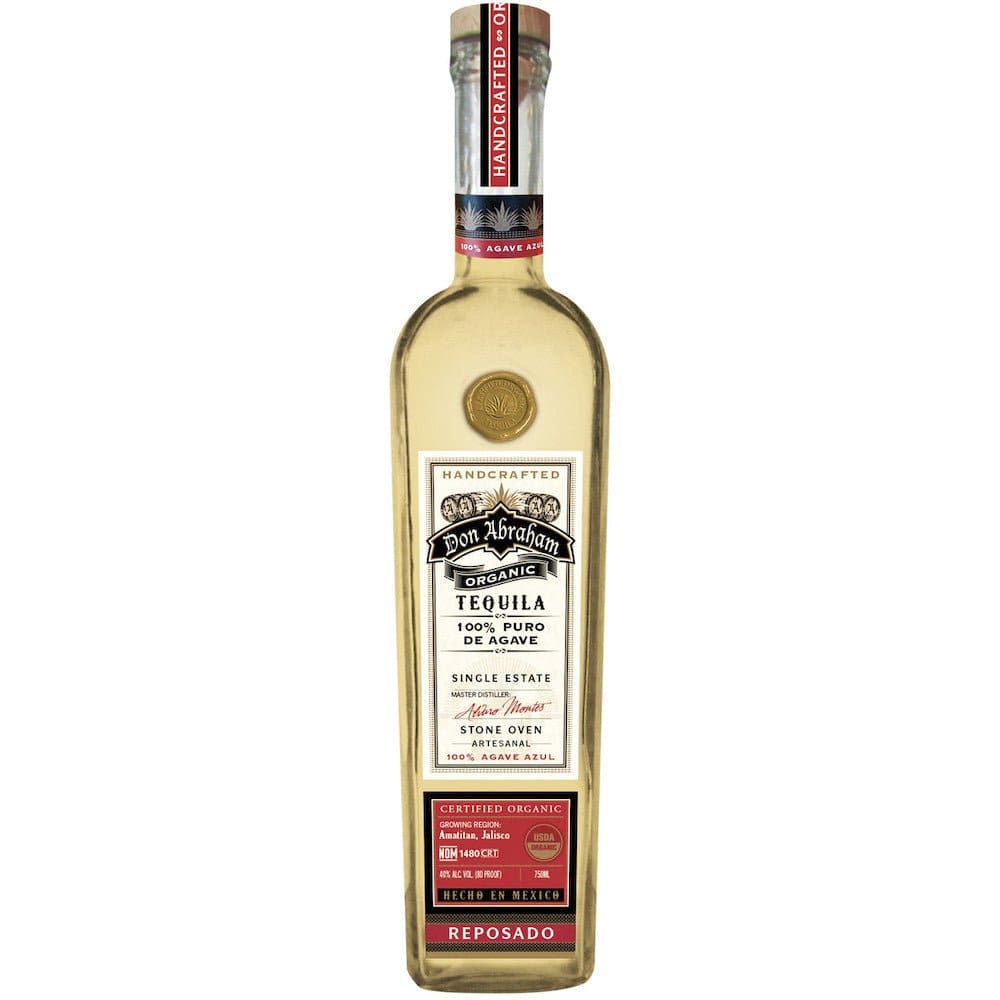
Don Abraham Reposado Tequila
Experience the Authentic Flavor of Don Abraham Reposado Tequila
Discover the rich heritage of Don Abraham Reposado Tequila, crafted from the finest 100% blue agave plants, meticulously chosen for their perfect maturity. Our tequila embodies the essence of tradition and quality, ensuring every sip is a true reflection of its origins.
Key Features:
- 100% Blue Agave: Made exclusively from the best quality blue agave, ensuring a pure and natural taste.
- Aged to Perfection: Aged for 9 months in oak barrels, our reposado tequila acquires a distinctive color, aroma, and flavor profile.
- Crafted with Care: Each step of the production process is closely supervised to maintain the highest standards of quality.
- Optimal Conditions: Sourced from the Amatitan region of Tequila, Jalisco, Mexico, where the unique soil and climate contribute to superior agave growth.
- 40% ABV (80 Proof): A balanced strength that enhances the tasting experience.
Why Choose Don Abraham Reposado Tequila?
Whether you are enjoying it neat, on the rocks, or as a key ingredient in your favorite cocktails, Don Abraham Reposado will elevate your drinking experience. Celebrate life’s moments with a tequila that stands as a testament to rich Mexican heritage and exceptional craftsmanship.

Explore a World of Spirits and Liquor through our Comprehensive FAQ Section.
Discover a World of Spirits and Liquor in our Helpful FAQ Section.
Types of Spirits
- Whiskey: Made from fermented grain mash and aged in wooden casks.
- Vodka: Typically distilled from grains or potatoes and known for its clear, neutral flavor.
- Rum: Produced from sugarcane byproducts like molasses or sugarcane juice.
- Tequila: Made from the blue agave plant, primarily in the area surrounding Tequila, Mexico.
- Gin: Distilled with botanicals, primarily juniper berries, giving it a distinctive flavor.
Production Process
- Fermentation: The process where yeast converts sugars into alcohol.
- Distillation: Separating alcohol from the fermented mixture to increase its concentration.
- Aging: Storing spirits in barrels to develop flavors over time.
Tasting and Pairing
- Tasting Notes: Learn to identify different aromas, flavors, and textures.
- Food Pairings: Discover which spirits complement various dishes, enhancing the dining experience.
Cocktails and Mixology
- Classic Cocktails: Recipes and techniques for making popular drinks like the Old Fashioned, Martini, and Mojito.
- Mixology Tips: How to balance flavors and create your own cocktail recipes.
History and Culture
Origins: The historical background of different spirits.
Cultural Significance: How spirits are enjoyed and celebrated around the world.

